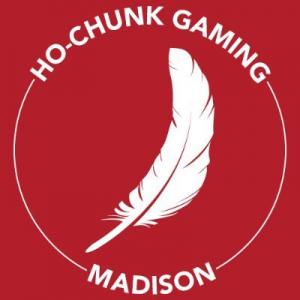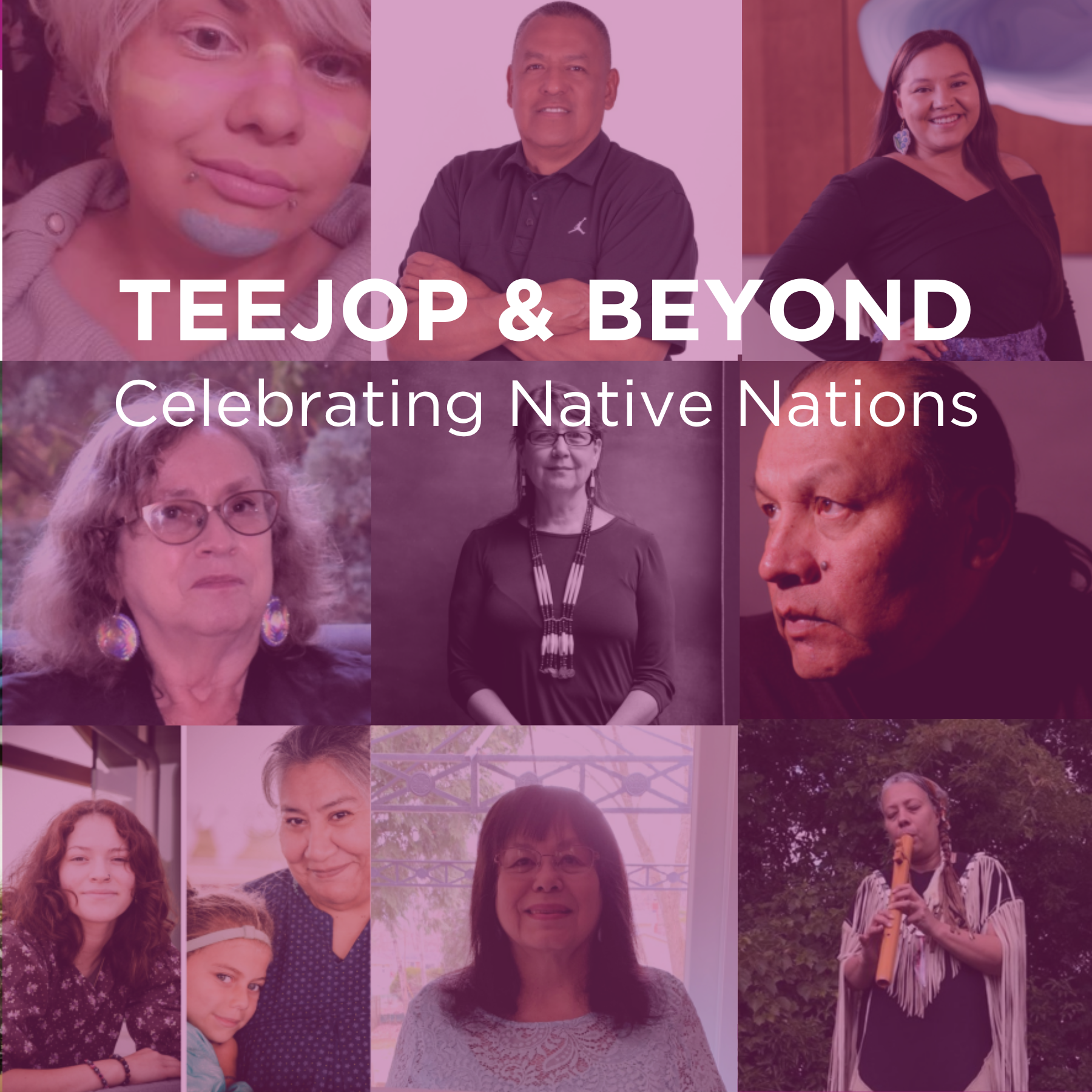 Each fall, Madison Public Library and Ho-Chunk Gaming Madison welcome a variety of Native artists, storytellers, and community leaders for a series of programs celebrating Indigenous people in and beyond Teejop (pronounced day-JOPE, meaning Four Lakes, or Madison). Beginning on Indigenous Peoples' Day each year, Native folks from different nations lead programs highlighting both traditional and contemporary practices, stories, and community relationships.
Each fall, Madison Public Library and Ho-Chunk Gaming Madison welcome a variety of Native artists, storytellers, and community leaders for a series of programs celebrating Indigenous people in and beyond Teejop (pronounced day-JOPE, meaning Four Lakes, or Madison). Beginning on Indigenous Peoples' Day each year, Native folks from different nations lead programs highlighting both traditional and contemporary practices, stories, and community relationships.
In 2023, nine presenters representing different Native tribes in Wisconsin led 15 programs from October - December on a wide range of topics, including art, the climate crisis, identity, mental health, growing up Native in Wisconsin, food and much more. Meet the presenters and learn about their programs below.
Upcoming Events
There are no scheduled events at this time.
Meet the Presenters
 Mx. T Clearwater (Menominee Nation)
Mx. T Clearwater (Menominee Nation)
Mx T Clearwater, of the Menomimee Nation, is a 28 year old Agender + Two-Spirit student at Madison College for the Liberal Arts transfer program to UW. Along with the goal of becoming a Toxicologist, T spends much time as a student leader, community organizer, advocate, activist, and artist.
Kim Crowley (Thunder Clan, Ho-Chunk Nation)
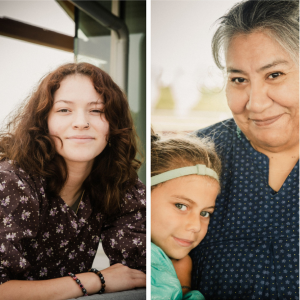 Kimberly Crowley is a member of the Hall family, known for their skills as master Ho-Chunk black ash basket and miniature basket weavers. Kimberly has been making baskets since she was 13 yrs old. Today, along with her granddaughters, Brooklyn and Ariel, she offers demonstrations and workshops to teach the art of black ash basket making.
Kimberly Crowley is a member of the Hall family, known for their skills as master Ho-Chunk black ash basket and miniature basket weavers. Kimberly has been making baskets since she was 13 yrs old. Today, along with her granddaughters, Brooklyn and Ariel, she offers demonstrations and workshops to teach the art of black ash basket making.
Tim Decorah (Ho-Chunk Nation)
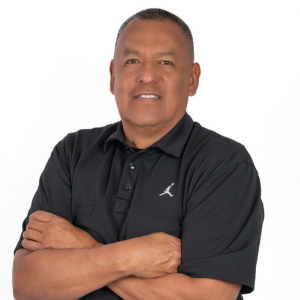 Tim Decorah grew up in Wisconsin Dells, WI and he has battled anxiety his entire life. Despite that was able to graduate from Wisconsin Dells High School in 1987 and earn a teaching degree from UW-Platteville in 1992. Tim has been in the education field for the last 32 years. At the end of this school year, he plans to retire and focus on helping people who struggle with their mental well-being, continue his work as a keynote speaker, and be an advocate on mental health.
Tim Decorah grew up in Wisconsin Dells, WI and he has battled anxiety his entire life. Despite that was able to graduate from Wisconsin Dells High School in 1987 and earn a teaching degree from UW-Platteville in 1992. Tim has been in the education field for the last 32 years. At the end of this school year, he plans to retire and focus on helping people who struggle with their mental well-being, continue his work as a keynote speaker, and be an advocate on mental health.
Sherman Funmaker (Bear Clan Elder, Ho-Chunk Nation)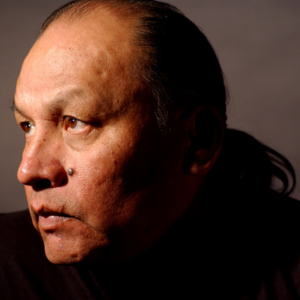
Sherman Funmaker is a poet, writer, and a UW Baraboo graduate. He was born in Black River Falls as a Bear Clan member and one of the grandsons of Mountain Wolf Woman. Sherman has done writing classes and talks since 2010, and he has worked with tribal youth on writing and video production. He is currently working on a book of poetry. In addition to writing, Sherman is also a musician, designer, and a photographer.
Denise Low (Lenape/Cherokee)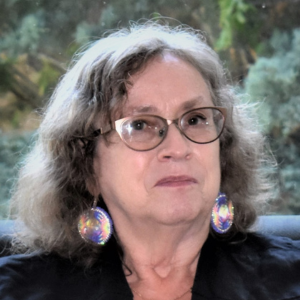
Denise Low, wife of author Tom Weso for 30 years, is a former Kansas poet laureate and non-fiction writer. Her memoir The Turtle's Beating Heart: One Family's Story of Lenape Survival (University of Nebraska Press) is re-released in a paperback edition. Her most recent book of poetry is House of Grace, House of Blood (University of Arizona Press, 2024). Denise Low will present on behalf of her late husband Thomas Pecore Weso, an author, educator, artist, and enrolled member of the Menominee Indian Nation of Wisconsin, for Good Seeds: A Menominee Indian Food Memoir.
Dawn Moneyhan (Little River Band of Ottawa Indians)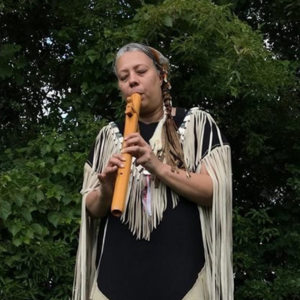
Dawn Moneyhan is a tribal knowledge keeper, cultural leader and teacher, artist, singer, and musician. She is also leader and founder of The Kwewag Indigenous Culture Church, a Native American-led 501c3 nonprofit working to help Native American foster care youth facing a lack of resources and disconnect from their tribes and cultures. Her connection with and responsibility to Mother Earth is strong and runs to her core.
Yvette Peguero (Menominee Tribe Elder)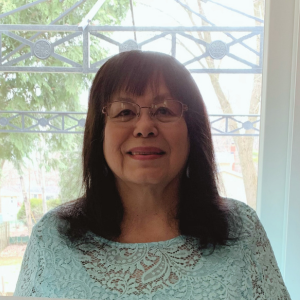
Yvette Peguero recently retired and moved to Madison after working for the Oneida Tribe as an educator/Principal for 41 years. Over the years she embraced many opportunities to learn about her culture. She loves to teach and share her knowledge of beading to all ages, but especially to the youth.
Paige Skenandore (Turtle Clan, Oneida Nation)
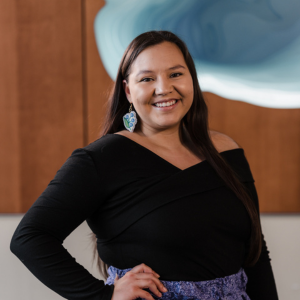 Paige Morningstar Skenandore’s Indian name roughly translates to, “she extends out a flower.” Paige is a UW-Madison graduate with a Bachelor of Science in Community and Nonprofit Leadership, and certificates in Environmental Studies and American Indian Studies. Throughout the years, she learned the arts of beading and porcupine quillwork, and her passion for art has allowed her to stay connected to her culture. Each item she creates is made with good intentions and is a unique expression. She created Moody NDN, an Indigenous art collective, to share her art, inspire other artists, and encourage healing and good medicine that comes from beading and quilling.
Paige Morningstar Skenandore’s Indian name roughly translates to, “she extends out a flower.” Paige is a UW-Madison graduate with a Bachelor of Science in Community and Nonprofit Leadership, and certificates in Environmental Studies and American Indian Studies. Throughout the years, she learned the arts of beading and porcupine quillwork, and her passion for art has allowed her to stay connected to her culture. Each item she creates is made with good intentions and is a unique expression. She created Moody NDN, an Indigenous art collective, to share her art, inspire other artists, and encourage healing and good medicine that comes from beading and quilling.
Melanie Tallmadge-Sainz (Ho-Chunk Nation)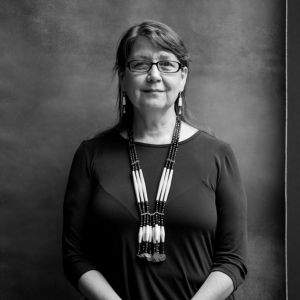
Melanie Tallmadge-Sainz was born in Baraboo and raised in the Wisconsin Dells area. She is an artist, cultural arts educator, and enrolled member of the Ho-Chunk Nation of Wisconsin. She has been the public program administrator and Education Specialist at places like the Winnebago Public Indian Museum in Wisconsin Dells, WI and the Heard Museum in Phoenix, AZ. As the founding Director of Little Eagle Arts Foundation, Melanie has facilitated workshops at the Aldo Leopold Foundation and the Nature Center at Devil's Lake and and co-produced full stage Native dance, music, and storytelling productions at the Crystal Grand Theatre in Wisconsin Dells.
Additional Resources
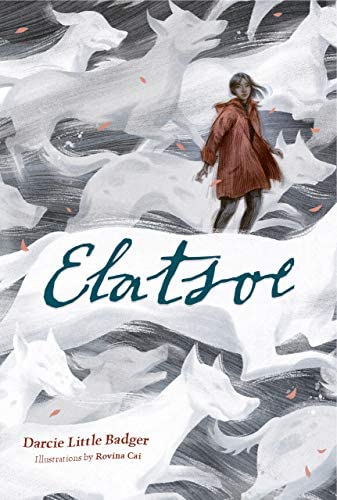 Native American Heritage Month Book List 2022
Native American Heritage Month Book List 2022
Native American Heritage Month Book List 2023 [DOWNLOAD]
Native American and Indigenous Fiction
Native American and Indigenous History & Culture; with Memoirs, Essays and Poetry
Native American and Indigenous Children's Books
Native American and Indigenous Experience for Middle Grades and YA
Indigenous Artist & Presenter Guide [DOWNLOAD]
Previous Storyteller-in-Residence

Ho-Chunk Through Story with Andi Cloud
In fall of 2021, Madison Public Library welcomed Ho-Chunk Nation storyteller and tribal member AJ (Andi) Cloud for a variety of interactive storytelling and creative learning opportunities. The programs kicked off on Indigenous Peoples' Day, October 11, 2021. They included art workshops, activity kits, outdoor story walks, digital stories, exhibits, and more all across the city focusing on topics like Ho-Chunk history and culture, the fall harvest, veterans and Veteran's Day, beadwork, black ash basket making, and growing up Ho-Chunk in the 20th Century.
Learn more about Ho-Chunk Through Story: The Origin, The Wayz, and The Life.
Past Programs
"Thunder in the Dells" Screening and Panel Discussion
Participants watched Dave Erickson and Lance Tallmadge's 1992 documentary film "Thunder in the Dells." After the film, a panel moderated by Melanie Tallmadge Sainz and composed of Janice Rice, Lisa Hendrickson, and Lance Tallmadge discussed panelists' cultural connection to the Dells and its formative years as a tourism destination.
Beaded Earrings and Drum Necklaces Workshops
Menominee artist Yvette Peguero taught youth participants how to create a beaded drum necklace and beaded earrings in a series of workshops.
Applying Indigenous Culture to the Climate Crisis
Dawn Moneyhan, enrolled member of The Little River Band of Ottawa Indians, led a discussion and hands-on demonstration on recognizing our natural resources all around us, and how to apply them to our daily lives as practiced in Native American cultures.
Survive & Thrive
Waunakee teacher and coach Tim Decorah spoke about his adversities through childhood that ultimately lead to battling anxiety as an adult, and shared how he was able to face these challenges.
Ho-Chunk Food Tasting
Kimberly Crowley invited the community to sample a few dishes the Ho Chunk people deem as traditional foods, including wild rice casserole, wild rice soup, frybread, fruit, and more.
Family History Writing Workshops with Sherman Funmaker
Ho-Chunk elder Sherman Funmaker led three family history writing workshops in different neighborhoods around town. He shared stories of his upbringing as a Bear Clan Member, a descendant of Mountain Wolf Woman, and a writer. He also read some of his original writings and guided participants in writing about their own family history.
Milkweed Soup Cooking Demo and Sampling Celebration
In early summer, Ho-Chunk people celebrate the foraging season for common milkweed flower buds, known as “Mahic” (MAW-heench) in the Ho-Chunk language. The mahic is cooked up into a delicious brothy soup with other vegetables and tiny dumplings. Olbrich Botanical Gardens' Indigenous Garden facilitator Rita Peters (Ho-Chunk) and Herb Garden horticulturist Erin Presley shared some insight into Ho-Chunk gardening and culinary traditions, and demonstrated how to make this soup using the last of their 2022 milkweed harvest - participants lined up for seconds and thirds!

Multi-generational Beading and Quillwork Bracelet Workshop
Founding Director of Little Eagle Arts Foundation, Melanie Tallmadge Sainz led a conversation about the history of naturally found and foraged bead materials as well as European glass beads used for commerce and adornment amongst the Ho-Chunk people. Participants created their own beaded friendship bracelets using bead and quill materials.
Language Revitalization & Decolonizing Gender and Sexuality
T Clearwater led discussions about the emotional significance of revitalizing stolen languages, and about rethinking gender and sexuality through Indigenous cultural lenses.
Quillwork and Beaded Keychains Workshops
Artist Paige Skenandore taught workshops about how porcupine quills are utilized in Indigenous artwork, and the importance of Indigenous beadwork history. Participants learned how to create beaded or quill keychains.
The Seven Fires Prophecies - Storytelling and Native American History
Dawn Moneyhan told the story of the Seven Fires Prophecies, as recorded from many Indigenous tribes & elders over many generations.
Tom Weso’s Food Memoirs
The late Menominee author Tom Weso's wife and copy editor Denise Low, a writer herself, spoke about his books, Good Seeds: A Menominee Indian Food Memoir and Survival Foods: North Woods Stories by a Menominee Cook -- their humor, good stories, and places important to this northern Wisconsin tribal nation.
Multigenerational Beading Workshop with Leah Winneshiek
Ho-Chunk artist Leah Winneshiek taught families and community members of all ages how to make a pair of earrings using wire beading techniques.
ONLINE - Remembering Wazhask: Indigenous Birth and Traditional Parenting
Raeanne Madison of Postpartum Healing Lodge led a virtual presentation on reclaiming and revitalizing Anishinaabe stories of birthing, postpartum, and lactation.
Black Ash (Demo) and Paper Basket Making Workshop
Kimberly Crowley is a member of the Hall family, known for their skills as master Ho-Chunk Black Ash and miniature basket weavers. Basket weaving is one of the longest practiced Ho-Chunk artistic forms that continues to this day. In this workshop, Kimberly demonstrated how Black Ash baskets are made, and then guided workshop attendees in making their own paper baskets.

Significance and History of the Program
Based on Vancouver Public Library’s Indigenous Storyteller in Residence program, the intention of this residency is to promote intercultural understanding and story sharing. In light of both the COVID-19 pandemic and movements for racial justice, it was also an opportunity to make space for healing and connection.
Excerpt from UW-Madison's Department of Tribal Relations website on Teejop (Dejope): Significance and History:
"The Ho-Chunk have called Teejop (pronounced Day-JOPE [J as in Jump]) and the shores of Waaksikhomikra (Where the Person Rests) home for time immemorial. In Hoocąk (Ho-Chunk language), Teejop translates as “Four Lakes”, named after the deep lakes that define the landscape and that provide a high quality of life for all living beings (plant and animal) in between the periodic ice ages that covered Teejop in a mile-thick sheet of ice."
Pitch A Program
Although applications for Teejop & Beyond 2023 are closed, we welcome ideas year-round for Native presenters to host programs at the library.
We invite program ideas from any Native person living in Wisconsin, whether their homelands are in the Great Lakes region or elsewhere in the world. What kinds of stories, art, and knowledge would you like to share with the communities of Teejop/Madison? The content is up to you, but here are some places to start:
- Creation stories
- Cultural celebrations and seasonal customs
- Food, herbs, and crops
- Skills and crafts
- History: removals, returns, important figures, other topics
- Indigenous peoples in community or government
- Relationships between different nations, or collective efforts towards decolonization



